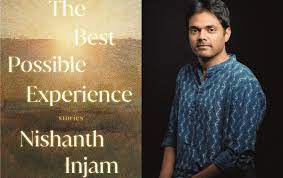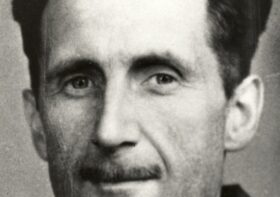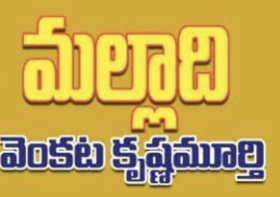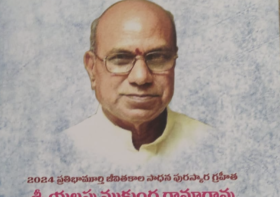Q&A with Nishanth Injam

Nishanth Injam is the author of the short story collection “The Best Possible Experience”, published by Pantheon Books, a division of Penguin Random House in July 2023. He grew up in Telangana and currently lives in the U.S., and this is his debut short story collection. The New York Times described the book as a “stunning debut”. What follows is a (not so) short email q&a with Nishanth Injam, on his writing, and his experience as an immigrant author publishing in the US. Questions are prepared by Sowmya, with inputs from Mr Ramesh Karthik Nayak and Mr Ramana Murthy.
Q: Congratulations on the publication of “The best possible experience”, Nishanth. How is the reception for the book so far? Did you hear any feedback from readers back home or from Indian immigrants in the US?
A: It’s been great so far. I’ve gotten good reviews and it’s been nice to hear kind things from people who read and enjoyed the book.
Q: Can you tell us a little bit about your background, where you grew up, and how you got interested in writing?
I grew up in Khammam and moved to the States for a masters degree in computer science. I graduated and found a job, but I felt very lonely in America and missed home. On a whim, seeking an outlet of some sorts, I took a creative writing class and instantly I knew that was it. That writing would let me keep my country next to me. And so I wrote.
Q: Why do you write? Who do you write for? What/who are your influences?
I write for myself. I write to understand myself, to figure out what I think, and to find answers for questions that seem unanswerable.
Influences are listed in this q&a with LitHub.
Q: You published your first book as an immigrant author in the US. What are some advantages and disadvantages for an immigrant, especially someone who comes from a non-literary professional background, aspiring to publish in the American fiction market?
The list of disadvantages is very long! There’s a lot to learn, in terms of language, craft, aesthetics. If I elaborate, I’m afraid my response will be several pages long.
The one advantage is that you can bring a new voice and your work may be seen as fresh.
Q: Several stories in the book deal with the theme of immigration, and a sense of displacement, loss and longing can be observed in almost all stories, even when they happen within India. What are the inspirations behind your stories and characters?
Different inspirations for each story, but overall I’d say, emotion, or the desire to evoke a certain emotion.
Q: The story I liked the most in the collection is the title story “The best possible experience”. Can you tell us a little bit about the story behind that story?
It’s one of the earliest stories in the book. I’d been thinking about why I wanted to write stories. And I was on a plane where the pilot drew our attention to a mountain we were passing by. My imagination conjured the rest.
Q: I have this sense of stories ending abruptly – did anyone mention that? For example, “Lunch at Paddy’s”. I was waiting to see how the rendezvous went. This was not the only story like that for me. What is your take on this opinion?
There’s a line in one of the stories in the book. It goes like this: “I haven’t gotten into the cab yet, but I don’t have to reach the house to know the conclusion of this journey.” I think the same about stories. We don’t need to see the final destination, a story ends when it hits the last emotional note.
Lunch at Paddy’s is about aspirational whiteness and the unyielding anxiety of being an immigrant who waits and waits and waits for assimilation. The actual lunch is irrelevant in my opinion.
Q: Do you read Telugu literature? If not, why not? If yes, what kind of Telugu books do you read/like?
Yes, occasionally. Not so much in the past couple of years, but I’ve read in the past. I try to re-read Kalipatnam’s Yagnam every few years. I read Telugu literature for the prose, for the alliterations, for the metaphors.
Q: Did you consider writing in Telugu?
No. Partly because I’ve associated Telugu with home. And I don’t feel the need to write when I’m home.
Q: What kind of writing interests you as a reader (in any language)? What are you reading currently?
Emotionally intelligent writing. I don’t care much for plot. I’m currently reading Coetzee’s Boyhood and Jorie Graham’s new poetry collection To 2040.
Q: What is your writing process and routine like? How much rewriting do you do? Who are your first readers?
It’s very laborious and I wouldn’t recommend my process at all. I write the first sentence, and refuse to write the second sentence until I’m really happy with the first one. Once I have a full draft, I get feedback from friends or family members and do another overarching revision. My first readers are my wife or dad, and friends from my MFA program.
Q: What was the editing process for the book like? In particular, I am curious if there was anything in the original draft (e.g., culture specific words or say, Telugu words) that were edited out for the sake of western readers. I ask this because we frequently see the usage of foreign words here and there in translated pieces from other cultures. I was curious to know if people writing in English, but coming from a different cultural background, also use such constructions and how the editors react to that.
Nothing was edited out. There was no translation imposed.
Q: How did you find your publisher?
My agent submitted the manuscript to them. In America, agents handle submissions. And typically agents don’t take on authors unless they believe in the quality of writing.
Q: What are some resources you found useful as a writer?
Craft books. Online writing communities.
Q: What are your future plans?
I’m working on a novel. It’s too early in the process to reveal anything.
Q: One last question – it is perhaps too early to ask this, but what would be your advice for non-native English speaking authors wanting to publish in English?
Read widely and keep writing, there’s no substitute for it.




Leave a Reply